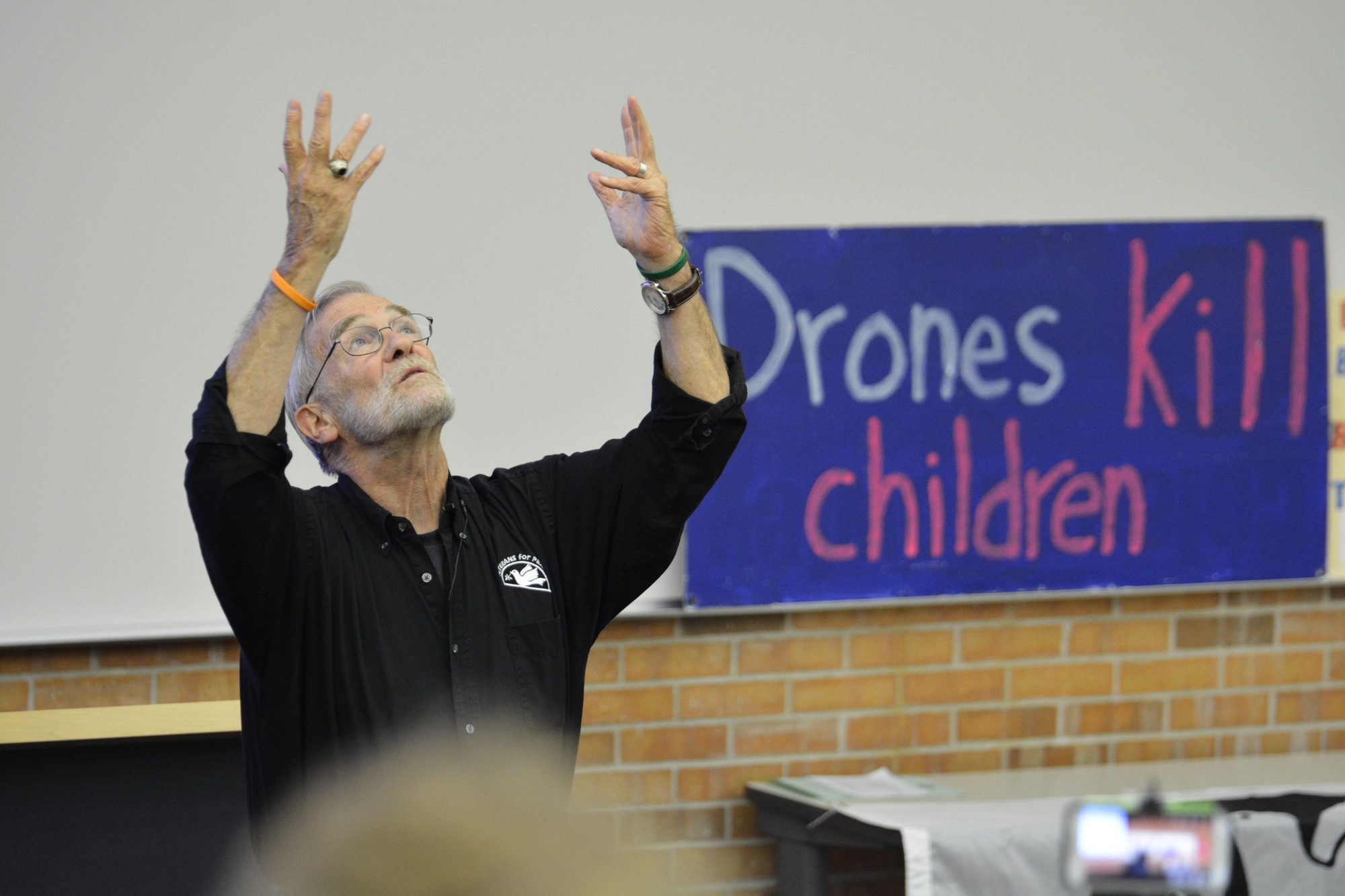
Speaking tour in Iowa organized by Veterans for Peace and co-sponsored by AFSC. Jon Krieg / AFSC 2015
Orlando, Dhaka, Istanbul, Baghdad, Saudi Arabia
There have been so many different acts of mass political violence in the past three weeks it's been hard to keep count. Which of these attacks were caused by which groups is still up for debate. But one thing remains the same: News outlets cover these groups, particularly ISIS, as either crazy or cunning, and sometimes both.
Crazy or cunning? Maybe both/and?
In our recent report on how media cover violent extremism, we found that about two-thirds of the articles in our sample framed extremist groups like ISIS as totally irrational: They used adjectives like crazy, psychopathic or barbaric to frame these groups.

Another two-thirds of the articles framed these groups as rational, describing such groups as highly organized, cunning or thoughtful. In about one-third of cases, we saw an overlap of these frames, meaning that one out of every three articles used both frames at least once in the same articles.

Our goal in documenting these frames is not to point out that some coverage is wrong and some coverage is right, or even that some is conflicted (though we did find that to be the case). The point is to show how media frame these actors as only fit for a violent response. If ISIS recruits are totally crazy, then the only language they will respond to is violence. If ISIS leades are at the helm of a state-like organization with its own military or government structures, then we must respond to them with the same kind of violence that they perpetrate.
The problem with these frames is that they make U.S. military intervention seem like the obvious, even necessary response to ISIS and similar groups. It doesn't help that U.S. military intervention was by far the most-covered form of U.S. intervention abroad. Yet, we know from data as well as our own experience over the past century that the reverse is actually true: Nonviolence is more effective in the long-run than violence.
What do you think about the state of coverage of violent extremism? Tell us about it on Facebook or in the comments.